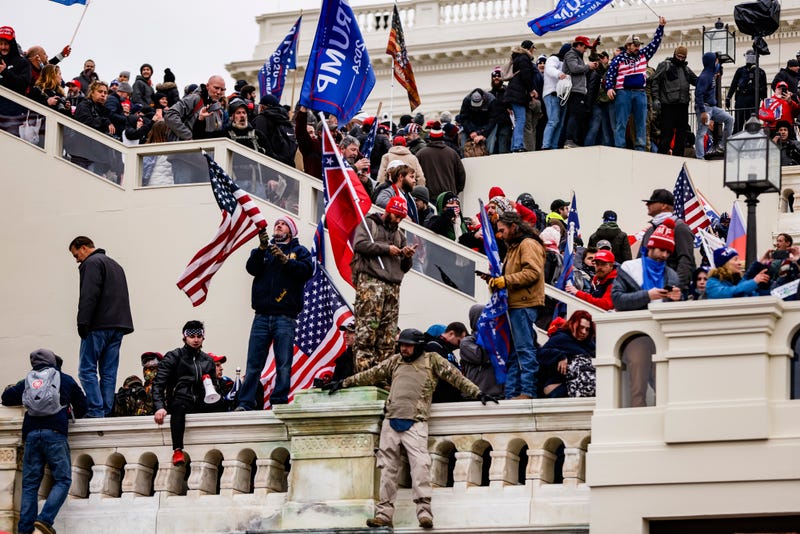
PHILADELPHIA (KYW Newsradio) — President Donald Trump first encouraged his supporters to protest at the U.S. Capitol, ahead of congressional proceedings challenging Joe Biden’s Electoral College victory.
As protests quickly turned to violent mobs, Trump tweeted to his supporters to “stay peaceful.”
In a third address — this time, a video — he told the swarms of rioters, “We love you, you’re very special,” but “you have to go home now.”
President-elect Joe Biden, meanwhile, denounced the violence and demanded Trump call off the “unprecedented assault.”
“At their best, the words of a president can inspire,” he said. “At their worst, they can incite.”
Many Americans have been indirectly provoked to take action, so could the president’s initial call for support be considered a crime? Did his words actually incite a riot? Is there a line where peaceful encouragement crosses into criminal activity?
Claire Finkelstein, director of the University of Pennsylvania’s Center for Ethics and the Rule of Law, believes Trump “encourages his supporters right up to the line of where he can go.”
“It’s no question in my mind that he has encouraged his supporters to engage in dangerous behavior, and at times, violent behavior,” she said.
But, there’s no clear determination of whether the president’s pleas for ardent support are considered illegal.
“These protesters and those taking stronger action — actually violating the law, actually trespassing onto Capitol grounds where they are not allowed to cross — we know that they are inspired by him and that he could absolutely call them off if they wanted to,” she said.
However, “I do not think that he can be legally blamed for the actions of his supporters, because of course, they have their free will and of course, in many cases, (they’re) exercising First Amendment rights. And he could say that’s all he wanted them to do. But it’s a dangerous game he is playing.
“I don’t think he can be legally blamed, but he can be morally blamed.”
LISTEN NOW on the RADIO.COM App
Follow RADIO.COM
Facebook | Twitter | Instagram